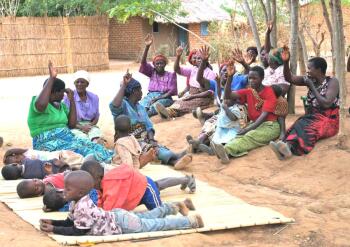Celebrating Young Girls Worldwide
 Today the world celebrates the International Day of the Girl. All over the planet events are being held recognizing the profound potential and contribution that young girls can make to the future of society. It is clear that when girls are allowed to go to school and learn and develop and be in charge of their own future, they can make the kind of changes needed for a more just and equitable society.
Today the world celebrates the International Day of the Girl. All over the planet events are being held recognizing the profound potential and contribution that young girls can make to the future of society. It is clear that when girls are allowed to go to school and learn and develop and be in charge of their own future, they can make the kind of changes needed for a more just and equitable society.
Forced Marriage
Sadly, every year an estimated 10 million girls are married before the age of 18 —approximately 37,000 girls married each day. Many of these girls, because of their family situation, are married off before their ninth birthday. In Sub-Saharan Africa alone, an estimated 14.3 million girls become child brides.
Girls who are forced to marry face a life of violence and abuse; endure inhuman and degrading treatment, have no decision-making power and are, essentially, slaves. Forced marriage places these young girls in situations for which they are neither physically nor psychologically prepared. In fact, many young girls are more likely to contract HIV/AIDS as their husbands being at high risk of being HIV positive.
Worse than this (if you can imagine), these child brides will suffer a life of illiteracy and lack of education, deepening the cycle of poverty. Girls living in rural areas of the developing world are twice as likely to be married before age 18 as their counterparts, and girls with no education are three times more likely to do so than those with secondary or higher education, and reside in the poorest households.
Education and Leadership for a Better Future
Planet Aid is an advocate for girl's education. We support 32 teacher-training colleges in Africa, and 22 in India, annually graduating more than 9,500 qualified teachers. The colleges train primary school teachers in rural areas while also preparing them to become leaders in the local communities where they teach, conduct outreach activities, including adult literacy classes.
Our Farmers' Clubs program also emphasizes the empowerment of women. Committees that are organized to lead the clubs are comprised of local women, which gives them decision-making power and raises their status in the community.
By 2020, some 142 million girls will be married by their 18th birthday. It is time to stop this trend — for the sake of families, communities and countries. By educating women, the cycle of poverty can be broken.
